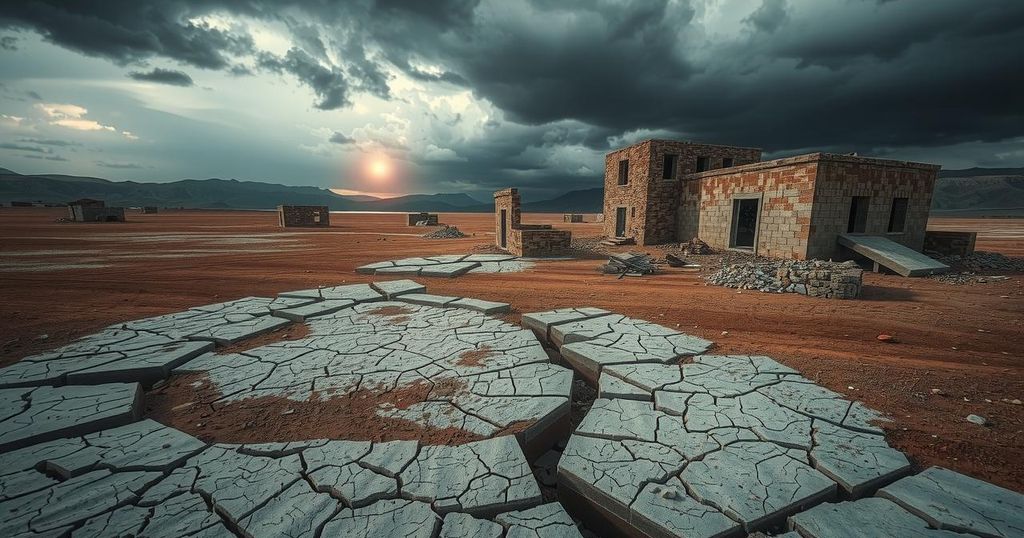In a recent UN briefing, Edem Wosornu urged the Security Council to act for Sudan’s civilians as conflict continues for nearly two years, causing widespread hunger and displacement. She highlighted dire conditions in North Darfur and Khartoum, including significant risks faced by humanitarian workers. A humanitarian response plan seeking $6 billion was launched to assist millions in need, emphasizing collective international support is critical.
During a briefing to the UN Security Council, Edem Wosornu from the UN humanitarian affairs office, OCHA, urged for enhanced civilian protection in Sudan as the brutal conflict approaches its second year. She stated, “Now more than ever, two years on, the people of Sudan need your action,” highlighting the dire humanitarian situation that has unfolded.
The ongoing clash between the Sudanese Armed Forces (SAF) and the paramilitary Rapid Support Forces (RSF) has resulted in over half of the nation, affecting 24.6 million individuals facing acute hunger and displacing more than 12 million people. Astonishingly, 3.4 million individuals have sought refuge across borders, with collapsed health services and a significant number of children being denied education amid persistent sexual violence outbreaks.
Focusing on recent distressing events, Ms. Wosornu drew attention to the deteriorating conditions in North Darfur and the Zamzam displacement camp, as well as in Khartoum. She expressed concern that eight months post the Council’s Resolution 2739 (2024), civilians remain vulnerable to ongoing attacks, particularly in North Darfur where RSF continues to besiege the state capital, El Fasher.
Ms. Wosornu reported heightened violence in and around the Zamzam camp, where famine conditions may affect hundreds of thousands. She noted that satellite imagery confirms the use of heavy weaponry, leading to significant destruction, including marketplace facilities. Civilian casualties, including humanitarian workers, were reported amid intense fighting in the area.
In Khartoum, ongoing fierce clashes have impacted civilians severely, with OHCHR observing verified instances of summary executions as regions change hands. She emphasized the grave risks local responders and community volunteers face in both Khartoum and other impacted areas of the country.
Additionally, in southern Sudan, alarming new developments reveal fighting spreading into North Kordofan and South Kordofan states, thus intensifying dangers for civilians and complicating the delivery of humanitarian aid. Reports of attacks in White Nile state during the previous month have also indicated distressing atrocities against civilians.
During the last week, the humanitarian response plans for Sudan and surrounding regions were launched, seeking $6 billion to assist nearly 25 million Sudanese citizens and up to five million refugees from neighboring nations. Ms. Wosornu called upon the international community, especially Security Council members, to actively contribute to alleviating the crisis.
Concluding her remarks, Ms. Wosornu outlined three crucial requests to the Security Council: Firstly, ensuring all parties adhere to international humanitarian law for civilian protection; secondly, facilitating unhindered humanitarian access to affected individuals; and lastly, addressing the significant funding shortfall to meet the unprecedented needs in Sudan.
The briefing emphasized the dire need for international intervention in Sudan, calling for immediate action to protect civilians and ensure humanitarian access. With ongoing violence and increasing humanitarian crises, effective international support is crucial to alleviate the suffering of millions. The situation demands unprecedented mobilization of resources to meet the urgent needs of the affected population.
Original Source: news.un.org




